The Nursing Association of Nepal is the national governing body of nurses in Nepal. The central office is located in Kathmandu. It is a member of the International Council of Nurses.

A registered nurse (RN) is a nurse who has graduated or successfully passed a nursing program from a recognized nursing school and met the requirements outlined by a country, state, province or similar government-authorized licensing body to obtain a nursing license. An RN's scope of practice is determined by legislation, and is regulated by a professional body or council.
A nurse registry, nursing registry, or register of nurses is a list of nurses who are legally licensed to practice nursing. The register is maintained by the licensing body designated by law to regulate the profession. This is the source of the legal title "Registered Nurse". Usually each nurse is issued a unique identification or license number.
Nurse education consists of the theoretical and practical training provided to nurses with the purpose to prepare them for their duties as nursing care professionals. This education is provided to student nurses by experienced nurses and other medical professionals who have qualified or experienced for educational tasks, traditionally in Nursing schools. Most countries offer nurse education courses that can be relevant to general nursing or to specialized areas including mental health nursing, pediatric nursing and post-operatory nursing. Courses leading to autonomous registration as a nurse typically last four years. Nurse education also provides post-qualification courses in specialist subjects within nursing.
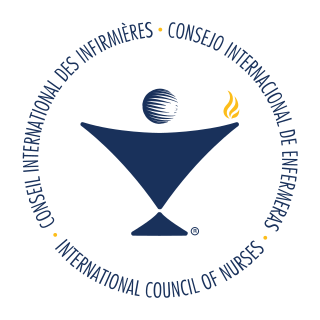
The International Council of Nurses (ICN) is a federation of more than 130 national nurses associations. It was founded in 1899 and was the first international organization for health care professionals. It is headquartered in Geneva, Switzerland.
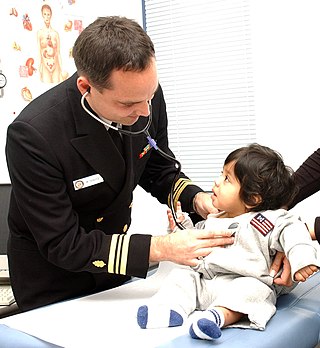
A nurse practitioner (NP) is an advanced practice registered nurse and a type of mid-level practitioner. NPs are trained to assess patient needs, order and interpret diagnostic and laboratory tests, diagnose disease, formulate and prescribe medications and treatment plans. NP training covers basic disease prevention, coordination of care, and health promotion, but does not provide the depth of expertise needed to recognize more complex conditions.
Dame Claire Bertschinger, DBE, DL is an Anglo-Swiss nurse and advocate on behalf of suffering people in the developing world. Her work in Ethiopia in 1984 inspired Band Aid and subsequently Live Aid, the biggest relief programme ever mounted. Bertschinger received the Florence Nightingale Medal in 1991 for her work in nursing, and was made a Dame by Queen Elizabeth II in 2010 for "services to Nursing and to International Humanitarian Aid".
Nursing credentials and certifications are the various credentials and certifications that a person must have to practice nursing legally. Nurses' postnominal letters reflect their credentials—that is, their achievements in nursing education, licensure, certification, and fellowship. The letters usually appear in the following order:
Institute of Medicine (IOM) is the premiere medical institution of Nepal located in Kathmandu

Nursing is a profession within the health care sector focused on the care of individuals, families, and communities so they may attain, maintain, or recover optimal health and quality of life. Nurses may be differentiated from other health care providers by their approach to patient care, training, and scope of practice. Nurses practice in many specialties with differing levels of prescription authority. Nurses comprise the largest component of most healthcare environments; but there is evidence of international shortages of qualified nurses. Nurses collaborate with other healthcare providers such as physicians, nurse practitioners, physical therapists, and psychologists. Unlike nurse practitioners, nurses typically can not prescribe medications in the US. Nurse practitioners are nurses with a graduate degree in advanced practice nursing. They practice independently in a variety of settings in more than half of the United States. Since the postwar period, nurse education has undergone a process of diversification towards advanced and specialized credentials, and many of the traditional regulations and provider roles are changing.
Nursing is self-regulated in Ireland. The regulatory body is An Bord Altranais. The board was established under the 1950 Nurses Act and currently operates under the 1985 Nurses Act. There are currently over 82,000 nurses registered by An Bord Altranais of which over 65,000 are on the active register ABA Statistics 2006.
Hyperbaric nursing is a nursing specialty involved in the care of patients receiving hyperbaric oxygen therapy. The National Board of Diving and Hyperbaric Medical Technology offers certification in hyperbaric nursing as a Certified Hyperbaric Registered Nurse (CHRN). The professional nursing organization for hyperbaric nursing is the Baromedical Nurses Association.

Tara Devi Tuladhar was Nepal's first female blood donor and a social worker who dedicated her life to serving society.
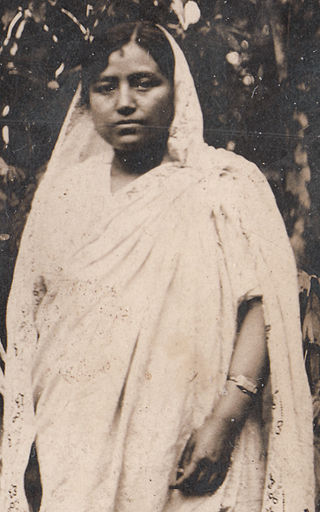
Vidyabati Kansakar was a pioneer of nursing in Nepal. She was among the first batch of four girls sent abroad to receive nurse training in 1928. They served at Nepal's only hospital Bir Hospital after their education, and became key figures in the development of modern health services in the country.

Radha Paudel is a Nepalese nurse, activist and writer. She won the Madan Puraskar for her memoir Khalangama Hamala. She has actively worked for raising awareness related to various women related issues.
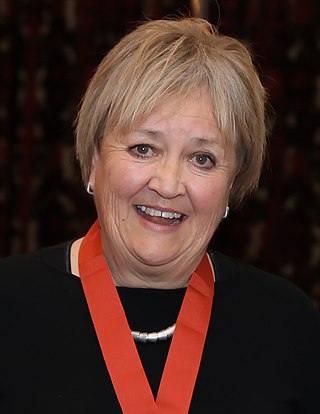
Jennifer Barbara Carryer is a New Zealand nursing academic. She is currently a full professor of nursing at the Massey University and executive director of the New Zealand College of Nurses.
The Nepal Nursing Council (NNC) is a statutory body for establishing uniform and high standards of Nursing education in Nepal. The Council grants recognition of nursing qualifications, gives accreditation to Nursing schools, administers Nursing Licensing Exam (NLEN) and maintains the registration of Registered Nurses in Nepal.
Pam Smith is a Professor of Nursing in the School of Health in Social Science at the University of Edinburgh. Her research relates to emotions and care within the nursing profession.
A nurse scientist is a nurse with advanced preparation such as a Ph.D. in nursing or related field including research principles and methodology, who also has expert content knowledge in a specific clinical area. The primary focus of the role is to provide leadership in the development, coordination and management of clinical research studies; provide mentorship for nurses in research; lead evaluation activities that improve outcomes for patients participating in research studies; contribute to the overall health sciences literature. Nurse scientists have been regarded as knowledge brokers. They participate in nursing research.
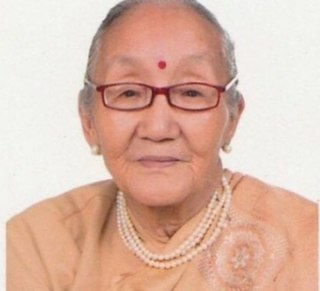
Lamu Amatya was the first Nepalese trained–nurse. She received her nursing degree in 1954 and started working in 1956. In 2017, the Ministry of Health and Population of Nepal certified and declared her as the first Nepalese nurse posthumously. Her son Yogeshwar Amatya, a popular Nepalese singer and musician, accepted the certificate on her behalf.